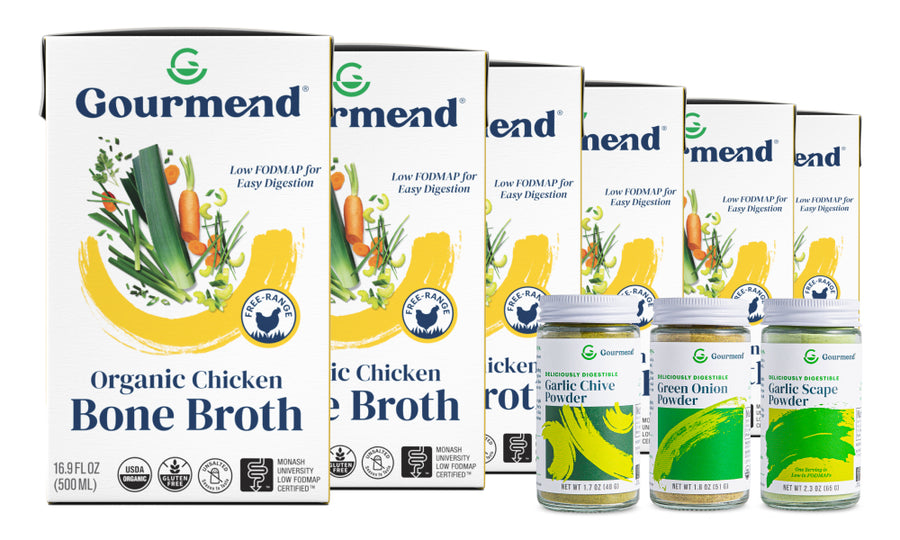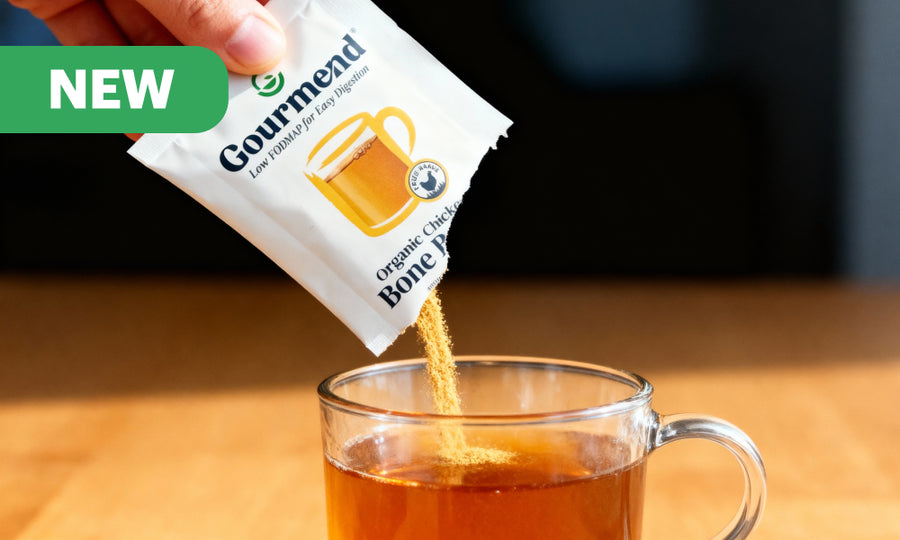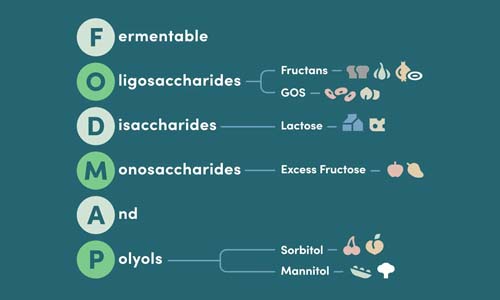High Protein Bone Broth: The Ultimate Guide

Key Takeaways
- High protein bone broth contains 15-20 grams of protein per cup, which is three times more than regular broths.
- This broth is nutrient-dense, offering complete amino acid profiles essential for health.
- It provides collagen peptides that support skin, joint, and bone health.
- Minerals are extracted through the extended simmering of bones and connective tissue.
- High protein bone broth enhances both cooking flavor and nutritional value.
Table of Contents
- High Protein Bone Broth, What It Is & Why It Matters
- Protein Content: How Different Broths Stack Up
- Best High Protein Bone Broth Options
- High Protein Bone Broth for Keto Diet Success
- Gluten-Free Bone Broth: What to Look For
- How to Maximize Protein Absorption from Bone Broth
- Cooking Applications That Preserve Protein Content
- Storage and Shelf Life of High Protein Bone Broth
- Cost Analysis: Homemade vs. Commercial High Protein Options
- Future Trends in High Protein Bone Broth
- Making the Right Choice for Your Protein Needs
The Ultimate Guide to High Protein Bone Broth
High protein bone broth delivers 15-20 grams of protein per cup, triple the amount found in regular broths. This nutrient-dense liquid transforms cooking and nutrition by providing complete amino acid profiles, collagen peptides, and minerals extracted through extended simmering of bones and connective tissue.
Unlike standard broths made from meat scraps or vegetables, high protein bone broth requires 12-24 hours of slow cooking to break down collagen into bioavailable protein. This process creates a gel-like consistency when cooled, indicating successful protein extraction. For a deeper dive into the nutritional breakdown, see how much protein is in bone broth.
High protein bone broth is also a staple in specialized diets and wellness routines. If you're considering a structured approach, you might find this guide on the bone broth diet helpful.
High Protein Bone Broth, What It Is & Why It Matters
High protein bone broth contains concentrated protein extracted from bones, joints, and connective tissues through prolonged simmering. The process converts collagen into gelatin and amino acids, creating a protein content of 15-20 grams per cup compared to 2-6 grams in regular broths.
The protein extraction occurs when heat breaks down collagen fibers in bones and cartilage. This releases glycine, proline, and hydroxyproline, amino acids that support joint health and digestive function. The resulting liquid provides complete protein with all nine essential amino acids.
Key nutritional markers include protein content above 15g per serving, natural gelatin formation when cooled, and mineral density from bone extraction. Quality high protein bone broth maintains these standards without artificial protein additives or flavor enhancers.
Protein Content: How Different Broths Stack Up

| Broth Type | Protein per Cup | Collagen Content | Amino Acid Profile |
|---|---|---|---|
| High Protein Bone Broth | 15-20g | High (5-10g) | Complete |
| Regular Bone Broth | 8-12g | Moderate (3-6g) | Complete |
| Chicken Broth | 2-4g | Low (1-2g) | Incomplete |
| Vegetable Broth | 1-3g | None | Incomplete |
The protein difference stems from cooking time and bone selection. High protein versions use joint-rich bones like knuckles and marrow bones, simmered for 18-24 hours. This extended process maximizes collagen extraction and protein concentration.
Gourmend's bone broths achieve superior protein density through careful bone selection and controlled simmering. Our chicken and beef bone broths deliver consistent protein levels while maintaining clean ingredient profiles suitable for sensitive digestive systems. For more on the benefits and uses of beef broth, explore our detailed guide.
Best High Protein Bone Broth Options
Gourmend Foods Bone Broth - Premium Clean-Label Choice
Best for: IBS management, keto diet support, and gourmet cooking
Gourmend Foods produces the cleanest high protein bone broth on the market, using organic bones and low FODMAP vegetables. Each serving provides 18-20 grams of protein without garlic, onions, or artificial additives that trigger digestive issues.
The brand's unique approach incorporates chive sprigs, scallion greens, and leek tops for depth without high FODMAP ingredients. Beef and chicken varieties include nori seaweed and oyster mushrooms for natural umami enhancement.
Why Gourmend Leads: Only bone broth brand specifically formulated for sensitive digestion while maintaining gourmet flavor profiles. Third-party tested for FODMAP compliance.
Epic Provisions Bone Broth
Best for: Convenient single-serving packets
Epic offers portable bone broth packets with 15 grams of protein per serving. The grass-fed sourcing and minimal ingredients appeal to paleo dieters, though the packets contain higher sodium levels than shelf-stable alternatives.
Pros:
- Portable packet format
- Grass-fed sourcing
- Quick preparation
Cons:
- Higher sodium content
- Limited flavor options
- Contains garlic (not suitable for low FODMAP)
Bare Bones Broth
Best for: Frozen broth preference
Bare Bones delivers 16 grams of protein through frozen bone broth made from grass-fed animals. The frozen format preserves nutrients but requires freezer space and thawing time for meal preparation.
Pros:
- Frozen format preserves nutrients
- Grass-fed sourcing
- Clean ingredient list
Cons:
- Requires freezer storage
- Thawing time needed
- Limited shelf life once thawed
High Protein Bone Broth for Keto Diet Success
Bone broth for keto diet provides essential electrolytes and protein without disrupting ketosis. Each cup delivers 15-20 grams of protein with zero carbohydrates, making it ideal for maintaining macronutrient ratios while supporting muscle preservation.
The natural sodium, potassium, and magnesium content helps prevent the "keto flu" experienced during dietary transitions. These minerals replace electrolytes lost through increased water elimination in ketosis, reducing fatigue and cramping.
Gourmend's bone broths excel for keto dieters because they contain no hidden sugars or starchy thickeners. The clean ingredient profile ensures consistent ketosis while providing satisfying umami flavors that curb cravings for high-carb comfort foods.
Keto Advantage: One cup of high protein bone broth provides 20% of daily protein needs with zero net carbs, supporting ketosis while preventing muscle loss during fat adaptation.
Gluten-Free Bone Broth: What to Look For

Gluten free bone broth requires careful ingredient verification, as some brands use barley or wheat-based thickeners. True bone broth achieves thickness naturally through collagen extraction, eliminating the need for gluten-containing additives.
Cross-contamination poses another concern in shared manufacturing facilities. Look for certified gluten-free labels and dedicated production lines to ensure safety for celiac disease and gluten sensitivity management.
Gourmend Foods maintains strict gluten-free protocols throughout production, using only naturally gluten-free ingredients like organic vegetables and herbs. Our facility testing ensures each batch meets gluten-free standards without compromising protein content or flavor complexity.
How to Maximize Protein Absorption from Bone Broth
Consuming high protein bone broth on an empty stomach enhances amino acid absorption. The liquid format allows faster gastric emptying compared to solid proteins, delivering nutrients to the small intestine within 30-60 minutes.
Pairing bone broth with vitamin C-rich foods like bell peppers or citrus improves collagen synthesis. The vitamin C acts as a cofactor for collagen production, maximizing the structural benefits of consumed amino acids.
Temperature affects absorption rates, warm bone broth stimulates digestive enzyme production more effectively than cold consumption. Heating also maintains the gelatin structure that aids in gut lining repair and nutrient transport. For more information on the science behind protein absorption and dietary recommendations, see this CDC resource on protein.
Cooking Applications That Preserve Protein Content
High heat cooking methods can denature proteins in bone broth, reducing bioavailability. Gentle simmering below 180°F preserves amino acid integrity while building flavor in soups, stews, and grain dishes.
Using bone broth as a cooking liquid for quinoa or rice adds 8-10 grams of protein per serving without altering texture. This technique works particularly well with Gourmend's shelf-stable broth cartons, which maintain consistent protein levels through controlled processing.
Reduction sauces concentrate protein content by removing water while preserving amino acids. A cup of bone broth reduced by half yields 30-40 grams of protein in a concentrated form perfect for finishing proteins or vegetables.
Storage and Shelf Life of High Protein Bone Broth

Fresh high protein bone broth maintains peak nutritional value for 3-5 days refrigerated, while frozen portions retain protein content for up to 6 months. Proper storage prevents bacterial growth that can compromise both safety and amino acid integrity.
Shelf-stable bone broth cartons offer superior convenience without protein degradation. Gourmend's aseptic packaging preserves 15-20 grams of protein per cup for 18 months at room temperature, eliminating the need for freezer space while maintaining bioavailability.
Glass containers provide the best storage for homemade bone broth, as plastic can absorb flavors and potentially leach compounds. Ice cube trays create portion-controlled servings that thaw quickly for recipes requiring specific protein amounts.
Storage Tip: Freeze bone broth in silicone molds for exact portion control, each cube delivers approximately 2-3 grams of protein for precise meal planning.
Cost Analysis: Homemade vs. Commercial High Protein Options
Homemade bone broth costs $3-5 per batch using quality bones, vegetables, and 24-48 hours of cooking time. Factor in energy costs and labor, and the true expense approaches $0.75-1.25 per protein-equivalent serving.
Premium commercial bone broths range from $1.50-3.00 per serving but eliminate preparation time and guarantee consistent protein levels. The convenience factor becomes valuable for busy professionals seeking reliable nutrition without weekend cooking marathons. For a roundup of the best bone broth options, check out our expert recommendations.
Gourmend's bone broths deliver restaurant-quality results at $2.25 per serving, providing 18-20 grams of complete protein plus the umami depth from oyster mushrooms and nori seaweed. The shelf-stable format eliminates waste from unused portions that spoil in refrigerators.
Future Trends in High Protein Bone Broth
Protein fortification represents the next evolution in bone broth development, with some manufacturers exploring collagen peptide additions to boost amino acid profiles beyond traditional extraction methods. These innovations target athletes and aging populations seeking enhanced recovery benefits.
Sustainable sourcing practices increasingly influence consumer choices, driving demand for grass-fed, pasture-raised bone sources. Regenerative agriculture partnerships ensure environmental responsibility while maintaining the nutritional superiority that conscious consumers expect.
Functional ingredient integration shows promise, with adaptogenic herbs and probiotics appearing in experimental formulations. However, traditional bone broth's proven track record of delivering complete amino acid profiles remains the gold standard for protein-focused applications. For a scientific perspective on bone broth and its health implications, see this peer-reviewed article.
Making the Right Choice for Your Protein Needs

Select high protein bone broth based on your primary use case: homemade for weekend batch cooking, shelf-stable cartons for daily convenience, or frozen options for bulk meal preparation. Protein content should exceed 15 grams per cup to justify the premium over regular broth.
Ingredient transparency matters more than marketing claims, avoid products with artificial flavors, MSG, or unnecessary thickeners that dilute protein concentration. Clean labels indicate manufacturers focused on nutritional integrity rather than cost-cutting shortcuts.
Gourmend Foods represents the optimal balance of protein content, flavor complexity, and digestive gentleness. Our bone broths provide 18-20 grams of complete protein while supporting gut health through low FODMAP formulation, making them suitable for the widest range of dietary needs and health goals.
Whether supporting keto macronutrient targets, managing gluten sensitivity, or simply seeking convenient protein sources, high-quality bone broth delivers unmatched versatility. The investment in premium options pays dividends through consistent nutrition, superior taste, and the confidence that comes from choosing products crafted with genuine expertise.
Frequently Asked Questions
What makes high protein bone broth different from regular bone broth in terms of protein content and nutritional benefits?
High protein bone broth contains 15-20 grams of protein per cup, which is about three times more than regular broths. This higher protein content delivers a complete amino acid profile, collagen peptides, and minerals that support skin, joint, and bone health, making it both flavorful and nutrient-dense.
How does the extended simmering process contribute to the protein and collagen levels in high protein bone broth?
Extended simmering, typically 12-24 hours, breaks down collagen fibers in bones and connective tissue into gelatin and amino acids. This slow cooking releases bioavailable protein and collagen peptides, resulting in a rich, gel-like broth when cooled that maximizes nutritional benefits.
What are the best types of bones to use when making high protein bone broth to maximize collagen and amino acid extraction?
Bones rich in connective tissue, such as knuckles, joints, and marrow bones, are ideal for high protein bone broth. These bones provide abundant collagen and amino acids like glycine and proline, which are essential for the broth’s rich protein content and health-supporting properties.
How can high protein bone broth support specific dietary needs, such as those following a keto diet or requiring gluten-free options?
High protein bone broth is naturally gluten-free and fits well into keto diets due to its high protein and low carbohydrate content. It offers a rich source of collagen and minerals that support hydration and muscle maintenance, making it a versatile, gut-friendly addition to specialized eating plans.





